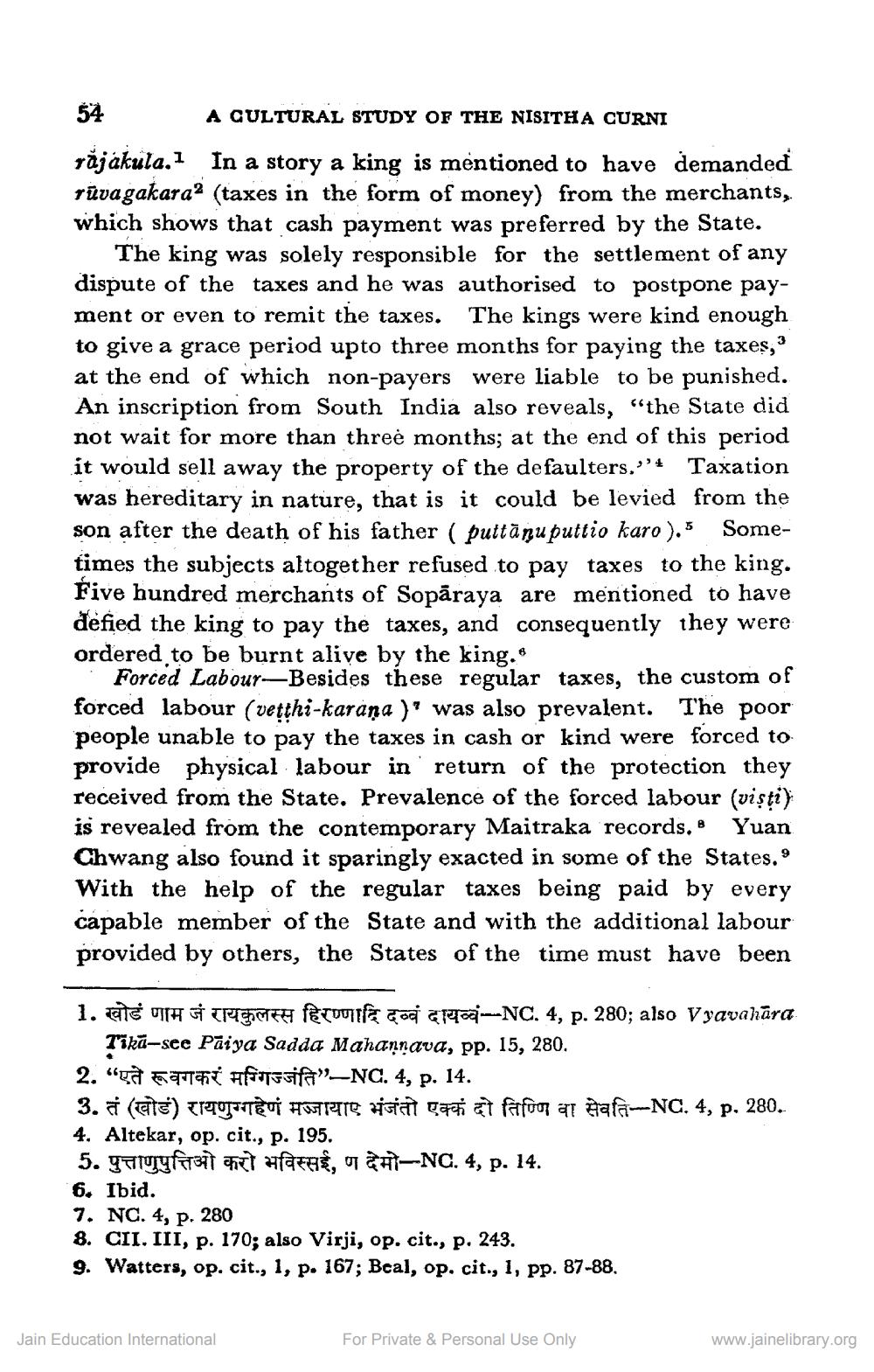________________
54
A CULTURAL STUDY OF THE NISITHA CURNI
răjakula.1 In a story a king is mentioned to have demanded rūvagakara2 (taxes in the form of money) from the merchants, which shows that cash payment was preferred by the State. The king was solely responsible for the settlement of any dispute of the taxes and he was authorised to postpone payment or even to remit the taxes. The kings were kind enough to give a grace period upto three months for paying the taxes,3 at the end of which non-payers were liable to be punished. An inscription from South India also reveals, "the State did not wait for more than three months; at the end of this period it would sell away the property of the defaulters." Taxation was hereditary in nature, that is it could be levied from the son after the death of his father ( puttāņu puttio karo),3 Sometimes the subjects altogether refused to pay taxes to the king. Five hundred merchants of Soparaya are mentioned to have defied the king to pay the taxes, and consequently they were ordered to be burnt alive by the king."
Forced Labour-Besides these regular taxes, the custom of forced labour (veṭṭhi-karana)" was also prevalent. The poor people unable to pay the taxes in cash or kind were forced to provide physical labour in return of the protection they received from the State. Prevalence of the forced labour (visti) is revealed from the contemporary Maitraka records. Yuan Chwang also found it sparingly exacted in some of the States. With the help of the regular taxes being paid by every capable member of the State and with the additional labour provided by others, the States of the time must have been
1. खोडं णाम जं रायकुलस्स हिरण्णादि दव्वं दायव्वं - NC. 4, p. 280; also Vyavahāra
Tika-see Paiya Sadda Mahanṇava, pp. 15, 280.
•
2. "एते रूवगकरं मग्गिज्जंति” – NC. 4, p. 14.
3. तं (खोड) रायणुग्गहेणं मज्जायाए भंजंतो एक्कं दो तिण्णि वा सेवति - NC. 4, p. 280.
4. Altekar, op. cit., p. 195.
5. पुत्ताणुपुत्तिओ करो भविस्सई, ण देमो - NG. 4, p. 14.
6. Ibid.
7. NC. 4, p. 280
8. CII. III, p. 170; also Virji, op. cit., p. 243.
9. Watters, op. cit., 1, p. 167; Beal, op. cit., 1, pp. 87-88.
Jain Education International
B
For Private & Personal Use Only
www.jainelibrary.org




